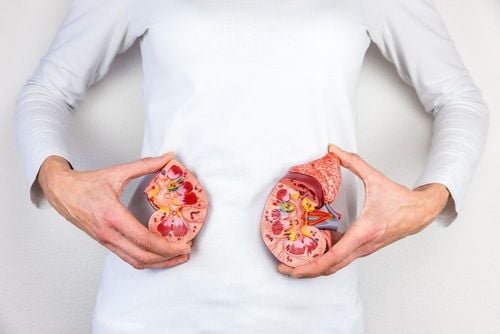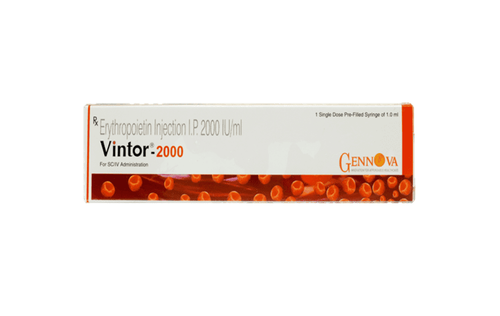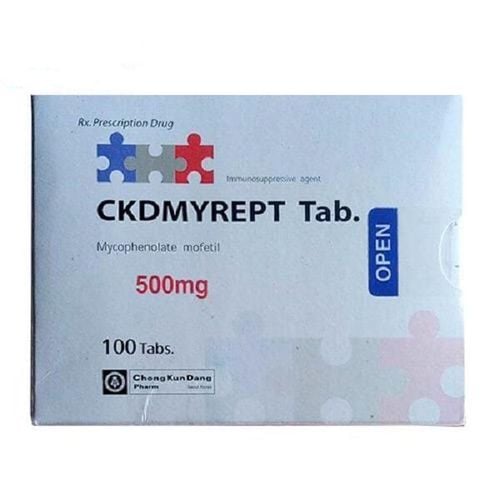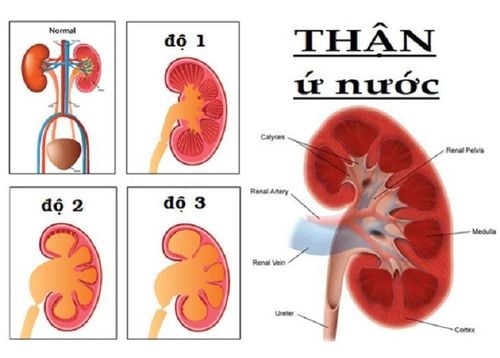This is an automatically translated article.
The article is expertly advised by MSc. Doctor Vu Thi Duyen - Doctor of Nephrology - Endocrinology, Department of Examination & Internal Medicine - Vinmec Hai Phong International General Hospital.End-stage chronic kidney disease is the most severe stage of chronic renal failure and at this time the patient needs complete renal function replacement therapy to continue to live. Currently, there are alternative treatment methods including: peritoneal dialysis, hemodialysis, kidney transplant,...
1. Peritoneal dialysis treatment of chronic kidney disease
The structure and function of the peritoneum is understood in the simplest terms, which is a semi-permeable membrane that allows water and solutes to pass through. Peritoneal dialysis is a method that uses the natural filtering capacity of the peritoneum to filter wastes and waste products from the blood. The waste is left inside the peritoneal cavity for some time to be absorbed, and then drained out through a catheter. This is a fairly simple method that patients can easily perform at home without requiring medical staff and periodic re-examination to receive translation of filtration devices. However, this method always carries catheters on the body, so there is a risk of infection. During peritoneal dialysis, some potassium will be lost, so patients need to supplement by eating a lot of vegetables and fruits, even if there is a lack of fruit, they must drink.Peritoneal dialysis is indicated for the following subjects:
End stage chronic renal failure
Contraindications to peritoneal dialysis:
Peritonitis. Abdominal bleeding trauma. Old surgical scars in the abdomen affect the peritoneum. Heart failure. Severe respiratory failure. Mental state not awake.
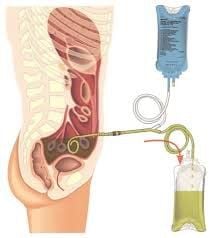
Lọc màng bụng là sử dụng khả năng lọc tự nhiên của phúc mạc để lọc các chất cặn bã, chất thải từ máu
2. Artificial kidney to treat end stage chronic kidney disease
An artificial kidney is a method of filtering blood through an artificial kidney machine and an artificial filter along with other consumables with the purpose of filtering out water and metabolic products from the blood out of the body. The blood is then returned to the body. Hemodialysis in patients can be performed intermittently or continuously. An intermittent dialysis session can last up to 6 hours, with continuous renal replacement therapies lasting 24 hours. The role of the artificial kidney is renal replacement therapy with the following purposes:Water balance. Electrolyte balance. Acid base balance. Remove the waste to be disposed of. Filter, reabsorb substances. Excretion of substances. Hemodialysis can cause some complications such as low blood pressure, cramps, infections, etc.. Patients need to pay attention to eating, limit water intake and don't eat fruits rich in potassium, and taking supportive medicine. Patients can still do normal activities on days without dialysis.
3. Kidney transplant
A kidney transplant is a method of taking a kidney from a healthy person with normal function to be transplanted to a person with end-stage renal failure. The transplanted kidney will function like a normal person's kidney. However, the disadvantage is that it is difficult to find a suitable transplant recipient and the cost of this method is quite high. After transplantation, anti-rejection treatment is required. A kidney transplant is usually taken from the following people:People who live in the same bloodline as parents, siblings. People who are not of the same bloodline. Brain dead person. All kidney transplants require long-term immunosuppressive therapy to prevent rejection. Therefore, patients are at high risk of transplant rejection and side effects of kidney transplant rejection drugs. In addition, the typical complications of kidney transplant include:
Immunity: fulminant rejection, acute rejection, chronic rejection,... Surgery: Incisional infection, ureteral obstruction, urine leakage , ureteral reflux, lymphatic cysts, urolithiasis, fibrosis or renal artery stenosis,... Medical: Renal failure, acute transplant rejection, acute tubular necrosis; Progressive renal failure: nephrotic syndrome, pyelonephritis, atherosclerosis, hypertension, erythrocytosis,...
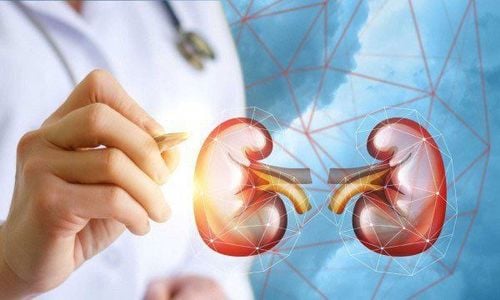
Ghép thận là lấy thận của người khỏe mạnh ghép cho người suy thận giai đoạn cuối
Early detection of chronic renal failure plays an important role in the treatment outcome, so the diagnosis has special significance. Renal function scintigraphy is routinely applied at the Nuclear Medicine Unit, Vinmec Hospital. This is a technique to evaluate kidney function using modern high-precision measuring equipment and radioactive tracer. With good quality images, functional renal scintigraphy has become an indispensable technique to probe kidney function, contributing to improving the efficiency of diagnosis and treatment of kidney and urinary tract diseases. In particular, the scan shows the function of each kidney individually, helping to make safe treatment decisions. Currently, Vinmec International General Hospital uses the SPECT/CT Discovery NM/CT 670 Pro equipment system, with the most modern 16-series CTs of the world's leading medical equipment company GE Healthcare (USA), for high-quality images, helping to diagnose diseases that need to be investigated early.
A team of experienced Vinmec doctors, well-trained at home and abroad, directly advise and provide maximum support to customers during the shooting process, even for foreign customers. .
Please dial HOTLINE for more information or register for an appointment HERE. Download MyVinmec app to make appointments faster and to manage your bookings easily.




